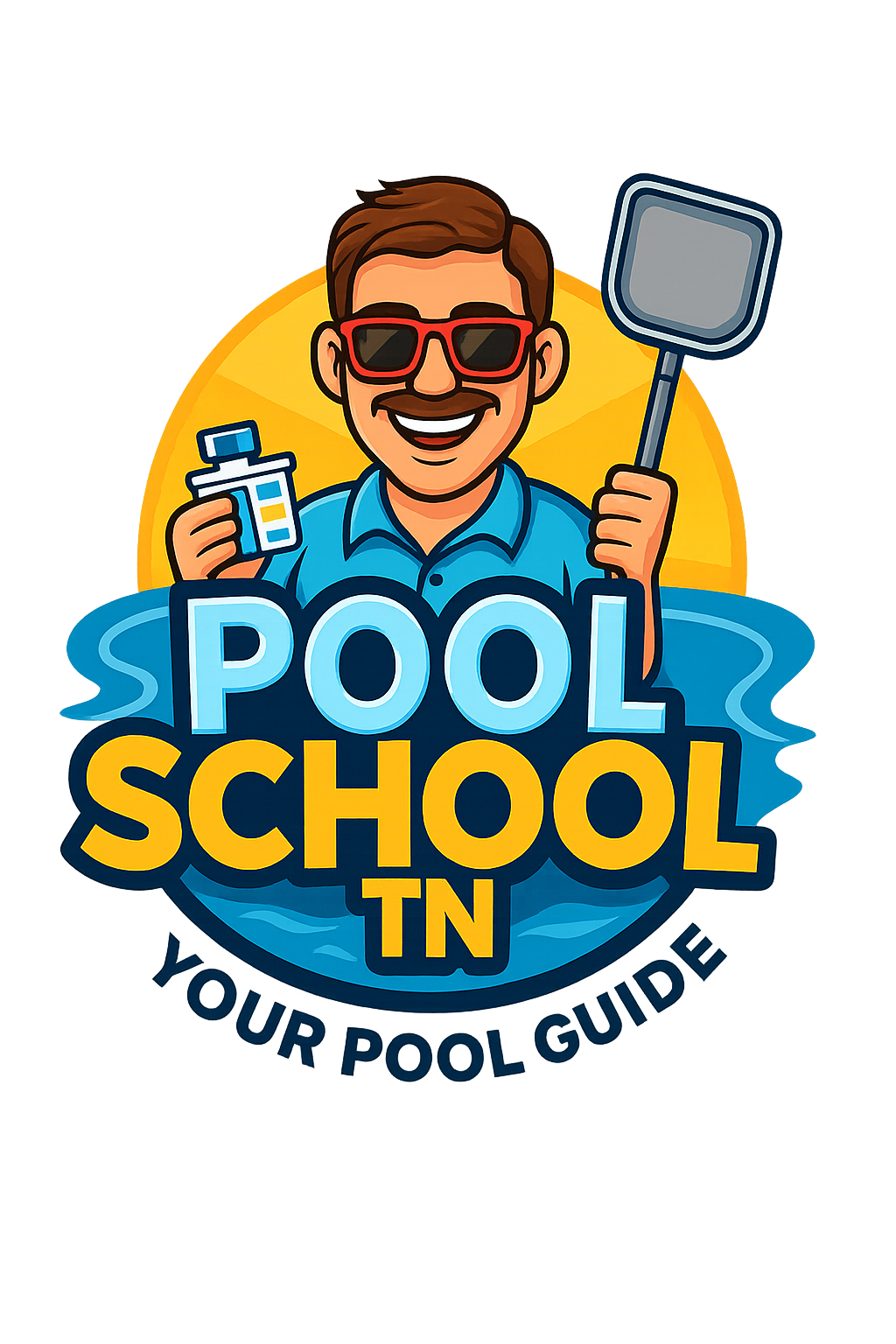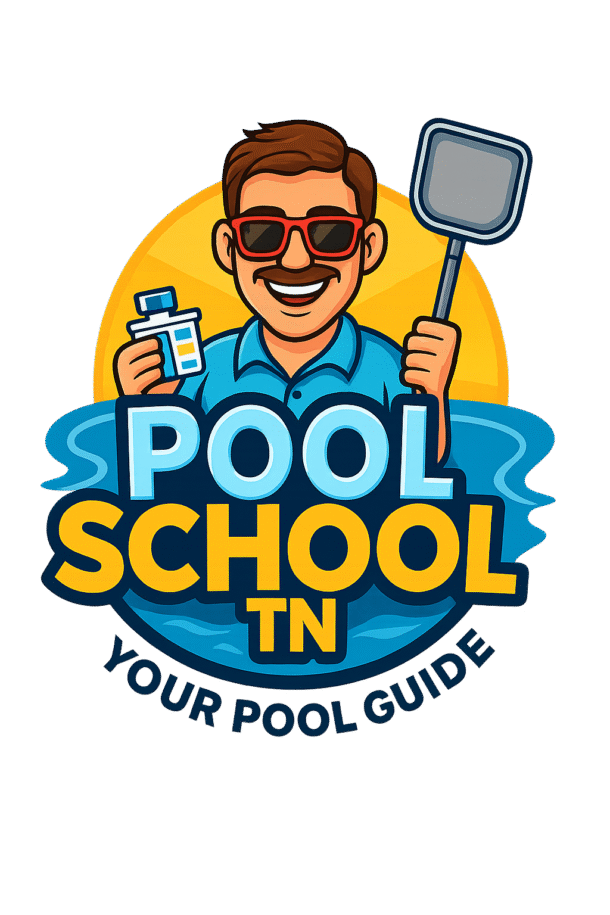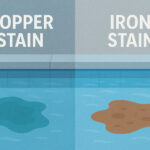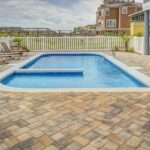I’m about to say something that might make me unpopular with the “natural pool cleaning” crowd, but after years of helping Tennessee pool owners recover from expensive mistakes, I can’t stay quiet any longer. Those viral articles telling you to clean your pool with baking soda, dish soap, and household cleaners? They’re not just wrong – they’re irresponsibly dangerous and will cost you hundreds or thousands in damage.
Yes, I’m calling out Swim University and similar content mills that prioritize clicks over your pool’s health. As someone who actually helps real pool owners with real problems, I’m tired of cleaning up the mess created by their “magical shortcuts” that promise everything and deliver disaster.
🚨 Reality Check: “Household cleaners in your pool aren’t ‘natural solutions’ – they’re expensive mistakes disguised as money-saving tips.”
The Clickbait Problem: Why Sites Push Dangerous “Natural” Solutions
The Business Model Behind Bad Advice
Let me explain exactly why sites like Swim University publish articles about “natural pool cleaners” – and it has nothing to do with helping you succeed with your pool.
The content mill strategy:
- Research trending searches like “natural pool cleaning” or “pool cleaning without chemicals”
- Create content that tells people what they want to hear
- Get clicks and ad revenue from uninformed pool owners searching for shortcuts
- Take zero responsibility when their advice destroys pools
What they’re NOT doing:
- Standing behind their advice with guarantees
- Offering to pay for damage caused by their recommendations
- Providing actual technical support when things go wrong
- Taking responsibility for the consequences of their “solutions”
The Appeal to Wishful Thinking
These articles succeed because they appeal to three dangerous beliefs:
- “There must be shortcuts” – People want to believe pool care can be simplified
- “Pool companies are ripping us off” – Conspiracy thinking about “Big Pool Chemical”
- “Natural is always better” – Misunderstanding of chemistry and safety
Here’s the truth: Pool chemistry is science, not opinion. Wishing something worked doesn’t make it work. Your pool doesn’t care about your desire for shortcuts – it responds to proper chemistry or suffers the consequences.
💡 Motivation Truth: “Sites that tell you what you want to hear make money from clicks. Sites that tell you what you need to know make money from actually helping you succeed.”
Debunking the Household Cleaner Myths
The Baking Soda Disaster
What Swim University claims: “Baking soda is a natural way to raise your pool’s alkalinity and pH.”
The dangerous reality: Baking soda (sodium bicarbonate) does raise alkalinity, but it’s formulated for food use, not pool water management.
Why this advice is harmful:
- Imprecise dosing: No standardized instructions for pool-specific applications
- Filler ingredients: Food-grade baking soda contains anti-caking agents and other additives not intended for pool water
- pH instability: Raises alkalinity and pH simultaneously, creating balance problems
- Cost inefficiency: Pool-specific alkalinity increasers are more concentrated and cost-effective per treatment
Scientific fact: Sodium bicarbonate for pools is manufactured to specific purity standards and concentrations. Arm & Hammer baking soda is made for cooking, not water chemistry.
Real consequences I’ve seen:
- Cloudy water that won’t clear despite proper filtration
- pH swings that become impossible to control
- Filter clogging from filler ingredients
- Chemical costs that actually increase due to inefficiency
The Dish Soap Catastrophe
What they claim: “A small amount of dish soap can help break down oils and improve water quality.”
The catastrophic reality: Dish soap in pools creates a disaster that can take weeks and hundreds of dollars to fix.
Why dish soap destroys pools:
- Phosphate loading: Most dish soaps contain phosphates as water softeners – phosphates are algae fertilizer
- Foam creation: Soaps create persistent foam that clogs filters and skimmers
- Surfactant problems: Soap reduces water surface tension, affecting pool chemistry and equipment operation
- Filter destruction: Soap residue clogs filter media and reduces effectiveness permanently
Scientific backing: Phosphates in concentrations above 100 ppb significantly increase algae growth rates. Most dish soaps contain 5-15% phosphates by weight.
Real damage I’ve witnessed:
- Green algae blooms within 48 hours of dish soap addition
- Filter systems requiring complete media replacement
- Foam problems lasting weeks despite multiple drain/refill attempts
- Thousands in professional remediation costs
The Vinegar Delusion
What they claim: “White vinegar is a natural way to lower pH and remove scale.”
The expensive truth: Vinegar creates more problems than it solves and costs more than proper pool chemicals.
Why vinegar fails in pools:
- Weak acid concentration: Acetic acid in vinegar is much weaker than muriatic acid, requiring massive quantities
- Organic contamination: Vinegar adds organic acids that bacteria can consume
- pH instability: Creates temporary pH reduction followed by rebound
- Cost explosion: The amount of vinegar needed costs 3-5 times more than proper pH reducer
Math that doesn’t lie: To lower pH by 0.2 in a 20,000-gallon pool requires approximately 2 gallons of vinegar vs. 1 quart of muriatic acid. Vinegar costs $8-12, muriatic acid costs $3-5.
Problems I’ve fixed:
- Bacterial blooms from organic acid addition
- pH that won’t stay down despite repeated vinegar additions
- Chemical costs that tripled using “cheap” alternatives
- Equipment corrosion from acidic organic compounds
The Phosphate Problem: Why Household Products Feed Algae
Understanding Phosphates in Pool Water
What phosphates do: Act as fertilizer for algae and bacteria growth Where they come from: Cleaning products, detergents, organic debris, and human contamination Why they’re dangerous: Even small amounts (above 100 ppb) significantly accelerate algae growth
Household Products Are Phosphate Bombs
Common household items and their phosphate content:
- Dish soap: 5-15% phosphates by weight
- Laundry detergent: 10-20% phosphates
- All-purpose cleaners: 5-10% phosphates
- Automatic dishwasher detergent: 20-30% phosphates
What this means for your pool: Adding any of these products introduces massive phosphate loads that turn your pool into an algae farm.
Scientific evidence: Research shows that phosphate levels above 500 ppb can support algae growth even with adequate chlorine levels. Household cleaners can introduce 1,000-5,000 ppb in a single application.
The Algae Explosion Cycle
How household cleaners create algae disasters:
- Phosphate introduction from cleaning product additives
- Algae spore activation as phosphates provide nutrition
- Rapid algae multiplication despite normal chlorine levels
- Chlorine demand spikes as algae growth overwhelms sanitizer
- Pool turns green while owner wonders why “proper” chemicals aren’t working
Recovery costs: Professional phosphate removal and algae treatment typically costs $200-500, plus lost pool time and chemical expenses.
🧪 Chemistry Reality: “Your pool doesn’t distinguish between ‘natural’ and ‘chemical’ – it only responds to molecular composition and concentration.”
The Hidden Costs of “Money-Saving” Alternatives
True Cost Analysis: Household vs Pool Products
Baking soda vs alkalinity increaser example:
- Baking soda (grocery store): $3-4 per pound, requires 2-3 lbs per treatment
- Pool alkalinity increaser: $8-12 for 5 lbs, requires 1 lb per treatment
- Cost per treatment: Baking soda $6-12, pool product $1.60-2.40
- Winner: Pool-specific product costs 60-75% less per effective treatment
Vinegar vs muriatic acid example:
- White vinegar: $2-3 per gallon, requires 2+ gallons
- Muriatic acid: $3-5 per gallon, requires 1 quart
- Cost per treatment: Vinegar $4-6, muriatic acid $0.75-1.25
- Winner: Proper pool acid costs 80-85% less
The Damage Costs Nobody Mentions
Equipment replacement from household cleaner damage:
- Filter media destruction: $50-200 replacement costs
- Pump seal damage from surfactants: $100-300 repair costs
- Heater cleaning from scale and soap residue: $150-400 service costs
Water quality restoration costs:
- Professional phosphate removal: $150-300
- Algae treatment and cleanup: $200-500
- Potential drain and refill: $300-800 for water and startup chemicals
Time costs:
- Weeks of unusable pool while fixing household cleaner damage
- Multiple chemical treatments to undo the damage
- Professional service calls that could have been avoided
💰 Economics Truth: “Household cleaners aren’t cheaper – they’re expensive mistakes that cost 5-10 times more than proper pool chemicals.”
The Science Behind Proper Pool Chemistry
Why Pool Chemicals Are Specifically Formulated
Pool-specific chemical advantages:
- Precise concentrations for predictable results
- Pure formulations without unwanted additives
- pH-neutral carriers that don’t disrupt water balance
- Standardized dosing based on scientific testing
- Quality control ensuring consistent performance
Household product problems:
- Unknown additives that interfere with pool chemistry
- Inconsistent concentrations making dosing unpredictable
- pH disruption from buffering agents and fillers
- Contamination introduction from non-pool ingredients
EPA Regulation and Safety
Pool chemicals are regulated:
- EPA registration required for efficacy and safety claims
- Standardized labeling with specific pool use instructions
- Quality control testing for purity and performance
- Safety data sheets with proper handling information
Household products are not:
- Not tested or approved for pool use
- No dosing guidance for pool applications
- Unknown interactions with pool equipment and chemistry
- No liability coverage for off-label pool use
When “Natural” Marketing Meets Pool Reality
The Natural Fallacy
What “natural” actually means: Derived from nature, not necessarily safe or effective What marketers want you to think: Safe, gentle, and superior to “chemicals” Scientific reality: Everything is chemicals – water is a chemical (H2O)
Examples of dangerous “natural” substances:
- Poison ivy: Completely natural, definitely not safe
- Snake venom: 100% natural, extremely dangerous
- Arsenic: Natural mineral, deadly poison
- Botulism toxin: Natural bacterial product, most poisonous substance known
Marketing vs Chemistry
Marketing claims focus on:
- Fear of “chemicals” (ignoring that everything is chemicals)
- Appeal to “natural” solutions (ignoring chemistry and safety)
- Promise of shortcuts (ignoring scientific requirements)
- Cost savings (ignoring hidden damage costs)
Chemistry focuses on:
- Molecular composition and behavior
- Concentration and purity requirements
- Interaction effects and safety
- Proven efficacy through testing
🔬 Science Truth: “Chemistry doesn’t care about marketing terms. Molecules behave according to physics and chemistry, not advertising slogans.”
The Responsibility Question
Where’s the Accountability?
When Swim University’s advice destroys your pool, ask yourself:
- Will they pay for filter replacement? No.
- Will they cover algae treatment costs? No.
- Will they compensate for equipment damage? No.
- Will they refund your lost pool time? No.
- Will they take any responsibility? Absolutely not.
Their disclaimer protects them, not you. They get ad revenue from your clicks, then disappear when their advice causes expensive problems.
What Real Pool Professionals Offer
Accountability from legitimate sources:
- Warranties on products sold for pool use
- Technical support when problems arise
- Professional liability for advice given
- Local service when repairs are needed
- Reputation stakes in your success
Why proper products cost more upfront:
- Research and development costs for effective formulations
- Quality control testing ensuring consistent performance
- EPA registration fees and compliance costs
- Liability insurance covering product performance
- Technical support infrastructure for customer help
Red Flags: Identifying Dangerous Pool Advice
Warning Signs of Clickbait Pool Content
Immediate red flags:
- “Natural” solutions that promise to replace proper chemicals
- “Secret” methods that pool professionals “don’t want you to know”
- Household products recommended for pool use
- Money-saving shortcuts that seem too good to be true
- No accountability or guarantees behind the advice
Language that should alarm you:
- “Pool companies don’t want you to know this”
- “Save hundreds with this natural alternative”
- “This household item works better than expensive chemicals”
- “The pool industry secret they’re hiding”
Questions to Ask Before Following Pool Advice
Source credibility:
- Who’s giving the advice? Do they have actual pool experience?
- What’s their business model? Do they make money from clicks or from helping pools?
- Will they stand behind it? Do they offer guarantees or support?
- What are their qualifications? Do they have relevant education or certification?
Advice evaluation:
- Does it sound too good to be true? It probably is.
- Does it promise shortcuts? Pool chemistry has no shortcuts.
- Does it appeal to conspiracy thinking? Science isn’t a conspiracy.
- Does it dismiss established science? Chemistry is proven, not opinion.
The Tennessee Pool Owner’s Protection Plan
How to Avoid Expensive Mistakes
Stick to proven principles:
- Use pool-specific chemicals designed and tested for pool use
- Follow manufacturer instructions for proper dosing and safety
- Test regularly with accurate testing methods
- Consult local professionals when unsure about anything
- Ignore clickbait promising shortcuts or secrets
Build relationships with:
- Reputable local pool stores that stand behind their advice
- Certified pool professionals who offer warranties and support
- Established chemical manufacturers with proven track records
- Educational resources based on science, not marketing
When to Be Suspicious
Be skeptical when someone:
- Promises easy solutions to complex problems
- Attacks the pool industry without offering better alternatives
- Promotes household products for pool use
- Claims secret knowledge that professionals hide
- Takes no responsibility for the consequences of their advice
The Bottom Line: Protecting Your Investment
Your Pool is Worth Protecting
Average pool investment: $20,000-60,000+ in Tennessee Average annual operating costs: $1,000-3,000 for proper maintenance Cost of fixing household cleaner damage: $500-5,000+ per incident
The math is simple: Proper pool chemicals cost pennies per gallon of pool water. Household cleaners cost dollars per gallon when you factor in damage and recovery costs.
My Promise vs Their Disclaimers
What I offer: Science-based advice backed by years of real-world Tennessee pool experience. When I recommend something, it’s because I’ve seen it work safely and effectively in our challenging climate.
What they offer: Clickbait content designed to generate ad revenue, with legal disclaimers protecting them from responsibility when their advice fails.
The difference: I live and work in Tennessee. I see the consequences of bad advice firsthand. My reputation depends on your pool’s success, not your clicks.
Conclusion: Choose Science Over Shortcuts
Pool ownership involves managing complex chemistry that affects thousands of dollars in equipment and investment. There are no shortcuts, no secrets, and no household products that outperform chemicals specifically designed and tested for pool use.
Sites like Swim University profit from telling you what you want to hear – that there are easy, cheap alternatives to proper pool care. The reality is that their advice costs pool owners thousands in damage while they collect ad revenue and accept zero responsibility.
I choose to tell you what you need to hear: proper pool chemicals exist for scientific reasons, household cleaners cause expensive damage, and there are no shortcuts to successful pool ownership. This might not be as appealing as promises of magical household solutions, but it’s the truth that will save your pool and your wallet.
The choice is yours: Believe the clickbait and pay the consequences, or follow proven science and enjoy years of successful pool ownership.
🎯 Final Reality: “Pool chemistry is science, not marketing. Your pool responds to molecules and concentrations, not to wishful thinking and shortcuts.”
When your pool is crystal clear and your equipment is running reliably year after year, you’ll understand why proper chemicals cost less than household disasters disguised as savings.
Tired of conflicting pool advice? Stick with science-based guidance that actually works in Tennessee’s challenging climate. Have questions about proper pool chemicals vs household alternatives? Share your specific situation in the comments and get advice you can trust – with no hidden agenda or clickbait motivation.









